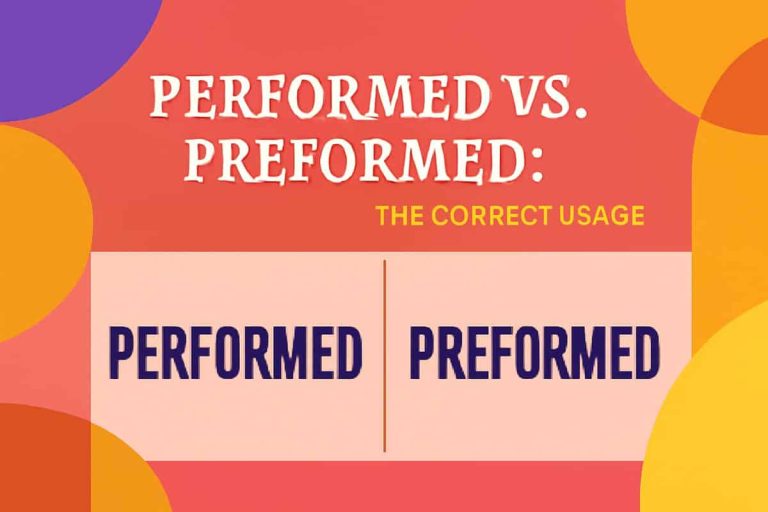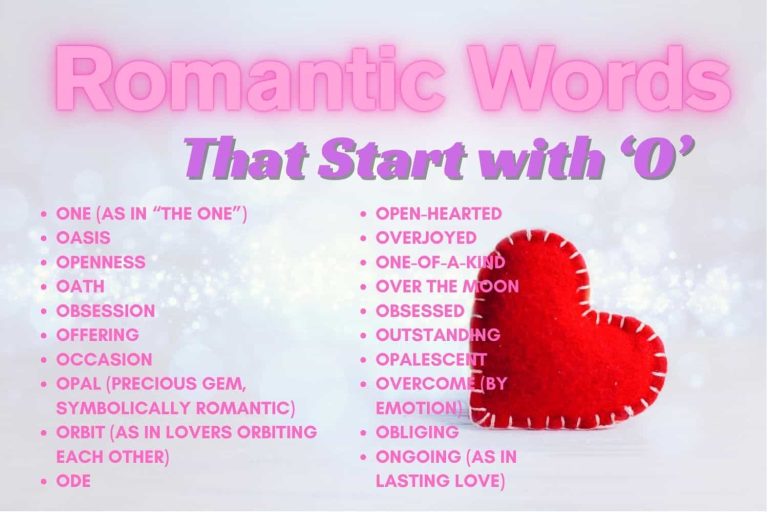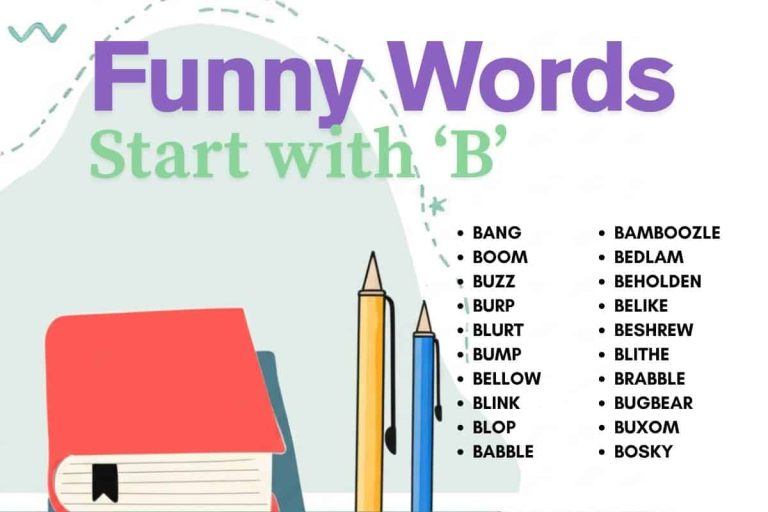Idioms for Smart: Common English Expressions Explained
When it comes to describing intelligence, English offers more than just words like “smart” or “clever.” Through idioms, we can express sharp thinking, quick wit, and mental agility in ways that are far more colorful and memorable.
Idioms for smart capture the many shades of intelligence — from book smarts and street smarts to quick thinking and wise judgment. They help us describe people in a way that feels vivid, natural, and often humorous.
Plus, using idioms makes your English sound more fluent and expressive, especially in casual conversations or storytelling. In this post, we’ll explore a variety of popular idioms that describe intelligence, wit, and wisdom. Each comes with its meaning and example so you can start using them with confidence and style.
Definition of Idioms for “Smart”
Idioms are expressions whose meanings cannot be understood from the literal meanings of the individual words. They are a type of figurative language that relies on a shared cultural understanding between speakers.
They can be used in both formal and informal contexts, although some idioms are more appropriate for casual conversation.
Here are some key characteristics of idioms:
- Non-literal Meaning: The overall meaning is different from the literal meanings of the words.
- Cultural Context: Idioms are often specific to a particular culture or language.
- Figurative Language: They use metaphors, similes, or other figures of speech.
- Fixed Expressions: The words in an idiom are usually fixed and cannot be changed without altering the meaning.
Structural Breakdown of Idioms
Idioms do not follow a strict grammatical structure because their meaning is not derived from the individual words but from the expression as a whole. However, it’s helpful to understand the common patterns in which idioms are formed.
Many idioms are phrases, which can include:
- Verb + Preposition: Pick someone’s brain
- Adjective + Noun: Sharp as a tack
- Noun + Verb: The lights are on, but nobody’s home
Some idioms are complete sentences, often used to make a point or observation about someone’s intelligence or behavior.
- He’s not the sharpest tool in the shed.
- She’s playing with a full deck.
Understanding the structure of idioms can help in recognizing and remembering them. While you can’t dissect an idiom grammatically to understand its meaning, recognizing common patterns can aid in comprehension.
Examples of Idioms for “Smart”
The following sections provide extensive examples of idioms for “smart,” organized by category. Each example includes the idiom, its meaning, and example sentences to illustrate its usage.
Idioms Describing General Intelligence
These idioms describe overall intelligence and mental acuity. They are used to indicate that someone is generally smart or bright.
The table below provides a list of idioms describing general intelligence, their meanings, and example sentences.
| Idiom | Meaning | Example Sentence |
|---|---|---|
| Sharp as a tack | Very intelligent and perceptive. | She’s as sharp as a tack; she always understands the most complex issues. |
| On the ball | Alert, competent, and efficient. | He’s really on the ball; he anticipates problems before they even arise. |
| Bright as a button | Very intelligent and cheerful. | The little girl is as bright as a button; she learns everything so quickly. |
| Has all their marbles | Mentally sound and intelligent. | Don’t worry about him; he still has all his marbles. |
| Quick on the uptake | Understands things quickly. | She’s very quick on the uptake; she grasped the concept immediately. |
| Brainy | Intelligent; intellectual. | He’s a brainy kid and excels in all his subjects. |
| Smart cookie | A clever or intelligent person. | She’s a smart cookie; she always finds a way to solve the problem. |
| Gifted | Having exceptional talent or natural ability. | The student is gifted in mathematics and science. |
| Above average | Better than the average person in intelligence. | His IQ test showed that he is above average in intelligence. |
| A whiz | Someone who is very skilled or knowledgeable in a particular area. | He’s a whiz at computer programming. |
| Knows their stuff | Is knowledgeable and competent. | She really knows her stuff when it comes to history. |
| A walking encyclopedia | Someone who knows a lot about many subjects. | Ask him anything; he’s a walking encyclopedia. |
| Has a good head on their shoulders | Is intelligent and sensible. | She has a good head on her shoulders and makes wise decisions. |
| Learned | Having acquired much knowledge through study. | He is a learned scholar with expertise in many fields. |
| Astute | Having an ability to accurately assess situations or people and turn this to one’s advantage. | She is an astute businesswoman who knows how to negotiate deals. |
| Savvy | Having or showing perception, comprehension, or shrewdness, especially in practical matters. | He is a savvy investor who knows how to make money. |
| Wise | Having or showing experience, knowledge, and good judgment. | She is a wise woman who gives good advice. |
| Sage | Profoundly wise person. | The sage offered guidance to those seeking wisdom. |
| Brilliant | Exceptionally clever or talented. | She gave a brilliant performance in the play. |
| Ingenious | Clever, original, and inventive. | He came up with an ingenious solution to the problem. |
| Intellectual | Possessing or showing a great deal of intellect. | The professor is an intellectual who enjoys discussing complex ideas. |
| Erudite | Having or showing great knowledge or learning. | The erudite scholar impressed everyone with his vast knowledge. |
| Profound | Having or showing great knowledge or insight. | Her profound understanding of the subject was evident in her presentation. |
| Well-read | Having read a lot of books and therefore having a lot of knowledge. | He is a well-read man who can discuss a wide range of topics. |
Idioms Describing Quick Thinking
These idioms describe the ability to think quickly and respond intelligently in a given situation. They often imply a sense of alertness and mental agility.
The table below provides a list of idioms that describe quick thinking, along with their meanings and example sentences.
| Idiom | Meaning | Example Sentence |
|---|---|---|
| Think on your feet | To react quickly and effectively without prior planning. | The interviewer asked an unexpected question, but she was able to think on her feet and give a good answer. |
| Quick-witted | Having or showing a ready intelligence. | He’s quick-witted and always has a clever response. |
| Sharp-witted | Having or showing quick intelligence. | She’s sharp-witted and can come up with solutions in no time. |
| Nimble-minded | Having a quick and agile mind. | The nimble-minded debater easily countered his opponent’s arguments. |
| Light on your feet | Able to react quickly and cleverly. | In a crisis, you need to be light on your feet to make the right decisions. |
| On the spot | Immediately; without delay. | He answered the question on the spot, showing his quick thinking. |
| Ready with an answer | Able to provide an answer or solution quickly. | She’s always ready with an answer, no matter how difficult the question. |
| Fast thinker | Someone who can think and make decisions quickly. | He’s a fast thinker and can solve problems in a hurry. |
| Adept | Very skilled or proficient at something. | She is adept at handling difficult situations with grace and intelligence. |
| Resourceful | Able to deal skillfully and promptly with new situations, difficulties, etc. | He is a resourceful problem-solver who can find creative solutions. |
| Improvisational | Creating or performing spontaneously or without preparation. | The improvisational comedian had the audience laughing with his quick wit. |
| Agile | Able to move quickly and easily. | Her agile mind allowed her to grasp complex concepts quickly. |
| Fleet-footed | Moving or able to move quickly. | His fleet-footed thinking helped him to navigate the challenging situation. |
| Expeditious | Done with speed and efficiency. | She provided an expeditious solution to the problem. |
| Prompt | Done without delay; immediate. | He gave a prompt response to the inquiry. |
| Sharp | Quick to understand things. | She has a sharp mind and quickly grasps complex ideas. |
| Alert | Quick to notice and respond to things. | The alert student noticed the error in the textbook. |
| Perceptive | Having or showing an ability to understand or notice things easily. | She is a perceptive observer of human behavior. |
| Insightful | Having or showing a clear understanding of a complex situation. | His insightful comments provided a new perspective on the issue. |
| Judicious | Having or showing good judgment. | Her judicious decision-making skills made her a valuable asset to the team. |
Idioms Describing Knowledge and Expertise
These idioms describe someone who possesses a great deal of knowledge or skill in a particular area. They often imply a deep understanding or mastery of a subject.
The table below provides a list of idioms that describe knowledge and expertise, along with their meanings and example sentences.
| Idiom | Meaning | Example Sentence |
|---|---|---|
| Know something inside out | To know something very well. | She knows the system inside out; she can fix any problem. |
| Have something at your fingertips | To have information readily available. | He has all the data at his fingertips, so he can answer any question. |
| Well-versed | Knowing a lot about a particular subject. | She’s well-versed in classical literature. |
| A font of knowledge | A person who knows a lot about many subjects. | He’s a font of knowledge; you can ask him anything. |
| An authority on | An expert in a particular subject. | She’s an authority on Renaissance art. |
| Highly skilled | Very proficient in a particular skill. | He’s a highly skilled surgeon with years of experience. |
| Master of | Having complete control or knowledge of something. | She is a master of her craft. |
| Proficient | Competent or skilled in doing or using something. | He is proficient in multiple programming languages. |
| Experienced | Having knowledge or skill in a particular field, especially gained over a period of time. | She is an experienced teacher with a proven track record. |
| Seasoned | Having a lot of experience of a particular thing. | He is a seasoned traveler who has visited many countries. |
| Versed | Experienced or skilled in; knowledgeable about. | She is well-versed in the intricacies of international law. |
| Masterful | Showing great skill or proficiency. | His masterful performance captivated the audience. |
| Competent | Having the necessary ability, knowledge, or skill to do something successfully. | She is a competent manager who can handle any situation. |
| Qualified | Officially recognized as being trained to perform a particular job. | He is a qualified engineer with years of experience. |
| Adept at | Very skilled or proficient at something. | She is adept at problem-solving and critical thinking. |
| Expert in | Having comprehensive knowledge or skill in a particular area. | He is an expert in the field of artificial intelligence. |
| Knowledgeable | Intelligent and well-informed. | She is a knowledgeable guide who can answer any question about the local history. |
Idioms Describing Fooling Others
These idioms describe someone who is clever enough to deceive or outsmart others. They often imply a level of cunning or shrewdness.
The table below provides a list of idioms that describe fooling others, along with their meanings and example sentences.
| Idiom | Meaning | Example Sentence |
|---|---|---|
| Pull the wool over someone’s eyes | To deceive someone. | He tried to pull the wool over my eyes, but I saw through his lies. |
| Outsmart | To be more clever than someone else. | She managed to outsmart her opponent in the negotiation. |
| Outwit | To get an advantage over someone by using one’s intelligence. | He outwitted the security system and gained access to the building. |
| Get the better of | To defeat someone in a competition or argument. | She got the better of him in the debate with her sharp arguments. |
| Take someone for a ride | To deceive or cheat someone. | He took me for a ride when he sold me a broken car. |
| Beguile | To charm or enchant (someone), often in a deceptive way. | The con artist beguiled his victims with his smooth talk. |
| Deceive | To deliberately cause (someone) to believe something that is not true. | He deceived his business partners by hiding the financial problems. |
| Hoodwink | To deceive or trick (someone). | The scammer hoodwinked the elderly woman out of her savings. |
| Bamboozle | To deceive or get the better of (someone) by trickery, flattery, or the like; humbug; dupe. | He tried to bamboozle me into investing in his scheme. |
| Swindle | To use deception to deprive (someone) of money or possessions. | The company swindled investors out of millions of dollars. |
| Dupe | To deceive; trick. | The con man duped many people into investing in his fraudulent scheme. |
| Outmaneuver | To use strategy to gain an advantage over someone. | She outmaneuvered her competitors by launching a new product first. |
Idioms Describing a Lack of Intelligence
These idioms are used to describe someone who is not very intelligent. They often use humorous or sarcastic language to convey a lack of mental acuity.
The table below provides a list of idioms that describe a lack of intelligence, along with their meanings and example sentences.
| Idiom | Meaning | Example Sentence |
|---|---|---|
| Not the sharpest tool in the shed | Not very intelligent. | He’s not the sharpest tool in the shed, but he’s a hard worker. |
| Not playing with a full deck | Not very intelligent or mentally stable. | I don’t think he’s playing with a full deck; he says some strange things. |
| A few sandwiches short of a picnic | Not very intelligent. | He seems to be a few sandwiches short of a picnic. |
| Not the brightest bulb in the box | Not very intelligent. | She’s not the brightest bulb in the box, but she’s very kind. |
| Dim-witted | Stupid or unintelligent. | He’s a bit dim-witted and doesn’t understand complex concepts. |
| Dense | Slow to understand; stupid. | He’s a bit dense and needs things explained to him several times. |
| Slow on the uptake | Slow to understand things. | She’s a little slow on the uptake, so you need to be patient with her. |
| Dumb as a doornail | Extremely stupid. | He’s as dumb as a doornail and believes everything he’s told. |
| Thick as a brick | Very stupid. | He’s as thick as a brick and can’t understand the simplest instructions. |
| Brainless | Stupid; unintelligent. | That was a brainless thing to do! |
| Empty-headed | Lacking intelligence or serious thought. | She’s often described as empty-headed, but she’s actually quite clever. |
| Nitwit | A stupid or foolish person. | He’s such a nitwit; he always makes silly mistakes. |
| Idiot | A very stupid person. | Only an idiot would do something like that. |
| Moron | A stupid person. | He acted like a complete moron. |
| Fool | A person who acts unwisely or imprudently; a silly person. | Don’t be a fool; think before you act. |
| Simpleton | A person considered foolish or of low intelligence. | He’s a simpleton who believes everything he hears. |
| Half-baked | Incompletely thought out or planned; foolish. | That’s a half-baked idea that will never work. |
Usage Rules for Idioms
Using idioms correctly requires understanding their specific meanings and contexts. Here are some general rules to follow:
- Understand the meaning: Make sure you know the precise meaning of the idiom before using it. Using an idiom incorrectly can lead to confusion or miscommunication.
- Consider the context: Some idioms are more appropriate for formal or informal settings. Choose idioms that are appropriate for your audience and the situation.
- Use them sparingly: Overusing idioms can make your language sound unnatural or forced. Use them when they add value and nuance to your communication.
- Don’t mix idioms: Avoid combining parts of different idioms, as this can create nonsensical expressions.
- Be aware of cultural differences: Idioms can vary significantly between cultures. Be mindful of your audience’s cultural background when using idioms.
Common Mistakes with Idioms
Here are some common mistakes that learners make when using idioms, along with correct examples:
| Incorrect | Correct | Explanation |
|---|---|---|
| He is sharp like a tack. | He is as sharp as a tack. | The correct idiom is “as sharp as a tack,” not “sharp like a tack.” |
| She is on the balling. | She is on the ball. | The correct idiom is “on the ball,” not “on the balling.” |
| He has all his marbles rolling. | He has all his marbles. | The correct idiom is “has all his marbles,” not “has all his marbles rolling.” |
| She is quick to take. | She is quick on the uptake. | The correct idiom is “quick on the uptake,” not “quick to take.” |
| He knows the system from the inside out. | He knows the system inside out. | The correct idiom is “inside out,” not “from the inside out.” |
Practice Exercises
Test your understanding of idioms for “smart” with these practice exercises. Choose the correct idiom to complete each sentence.
Exercise 1: Fill in the Blanks
Choose the correct idiom from the list to complete each sentence:
- Sharp as a tack
- On the ball
- Not the sharpest tool in the shed
- Quick on the uptake
- Think on your feet
| Question | Answer |
|---|---|
| 1. She’s ____________; she always understands complex issues immediately. | Sharp as a tack |
| 2. He’s really ____________; he anticipates problems before they even arise. | On the ball |
| 3. He’s ____________, but he’s a hard worker. | Not the sharpest tool in the shed |
| 4. She’s very ____________; she grasped the concept immediately. | Quick on the uptake |
| 5. You need to ____________ in this job because things change so quickly. | Think on your feet |
| 6. Even though he’s ____________, he’s a valuable member of the team because of his dedication. | Not the sharpest tool in the shed |
| 7. As a project manager, being ____________ is essential to managing deadlines effectively. | On the ball |
| 8. The detective was ____________ as he quickly pieced together the clues at the crime scene. | Sharp as a tack |
| 9. In the fast-paced world of emergency medicine, doctors must ____________ to save lives. | Think on your feet |
| 10. The student was ____________, absorbing new information and mastering complex subjects with ease. | Quick on the uptake |
Exercise 2: Multiple Choice
Choose the correct meaning of the idiom in each sentence.
| Question | Options | Answer |
|---|---|---|
| 1. He knows the subject inside out. | a) He knows the subject superficially. b) He knows the subject very well. c) He knows the subject a little bit. | b) He knows the subject very well. |
| 2. She has all the data at her fingertips. | a) She has to search for the data. b) She has the data readily available. c) She doesn’t have the data. | b) She has the data readily available. |
| 3. He tried to pull the wool over my eyes. | a) He tried to help me. b) He tried to deceive me. c) He tried to compliment me. | b) He tried to deceive me. |
| 4. She got the better of him in the debate. | a) She lost the debate. b) She won the debate. c) The debate was a tie. | b) She won the debate. |
| 5. She is a font of knowledge. | a) She knows nothing. b) She knows a lot about many subjects. c) She knows a lot about one subject. | b) She knows a lot about many subjects. |
| 6. He’s not playing with a full deck. | a) He is very intelligent. b) He is not very intelligent. c) He is average intelligence. | b) He is not very intelligent. |
| 7. The company swindled investors out of millions of dollars. | a) The company gave investors money. b) The company lost money. c) The company used deception to deprive investors of money. | c) The company used deception to deprive investors of money. |
| 8. The resourceful problem-solver found creative solutions. | a) The problem-solver lacked creativity. b) The problem-solver was skilled at finding solutions. c) The problem-solver gave up easily. | b) The problem-solver was skilled at finding solutions. |
| 9. He is a qualified engineer. | a) He is not trained as an engineer. b) He is officially recognized as being trained to perform engineering work. c) He is an unskilled engineer. | b) He is officially recognized as being trained to perform engineering work. |
| 10. She is adept at problem-solving. | a) She struggles with problem-solving. b) She is very skilled or proficient at problem-solving. c) She avoids problem-solving. | b) She is very skilled or proficient at problem-solving. |
Frequently Asked Questions
Here are some frequently asked questions about idioms for “smart”:
What is the difference between an idiom and a proverb?
An idiom is a phrase whose meaning is different from the literal meanings of the individual words, while a proverb is a short, well-known saying that expresses a general truth or piece of advice. Idioms are more about figurative language, while proverbs are more about wisdom and guidance.
How can I learn more idioms?
Read widely, listen to native speakers, and use idiom dictionaries or online resources. Pay attention to how idioms are used in context and practice using them in your own speech and writing.
Are idioms the same in all languages?
No, idioms are language-specific and often culturally bound. A direct translation of an idiom from one language to another may not make sense or have the same meaning.
How important is it to know idioms for understanding English?
Understanding idioms is crucial for comprehending spoken and written English. Native speakers use idioms frequently, and without knowing them, you may miss the intended meaning of a conversation or text.
Is it okay to use idioms in formal writing?
Some idioms are appropriate for formal writing, while others are more suitable for informal contexts. It’s important to consider your audience and the purpose of your writing when deciding whether to use an idiom.
What should I do if I don’t understand an idiom?
Ask for clarification. Don’t be afraid to ask the speaker or writer to explain the idiom. Alternatively, you can look it up in a dictionary or online resource.
How can I avoid misusing idioms?
Study the meaning and usage of idioms carefully. Pay attention to how native speakers use them and practice using them in context. If you’re unsure about an idiom, it’s better to avoid using it.
Why are idioms so common in English?
Idioms add color, nuance, and expressiveness to the English language. They allow speakers to convey complex ideas in a concise and memorable way. Theyadd richness and depth to communication, making it more engaging and interesting.
Conclusion
Mastering idioms for “smart” is an ongoing process that requires dedication and practice. By understanding the definitions, structures, and usage rules of these idioms, you can significantly enhance your English language skills.
Whether you are describing general intelligence, quick thinking, knowledge, or a lack thereof, idioms provide a colorful and nuanced way to express yourself. Continue to explore and practice using these idioms to become more fluent and confident in your communication.





